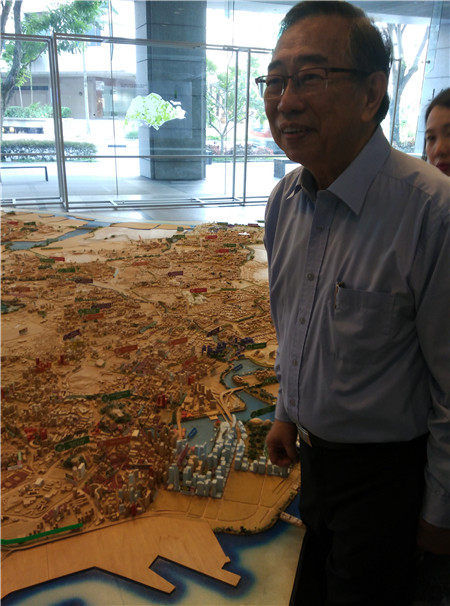 |
|
H.H. Lee, a second-generation immigrant to Singapore who became an interpreter for the late Singapore Primate Minister Lee Kuan Yew. [Photo by Zhao Xu/For China Daily] |
Although it was occupied by the invading Japanese for more than three years between 1942 and 1945, these days, there's not much in Singapore that would automatically remind a casual visitor of that history.
One exception is the towering Civilian War Memorial Monument, located on park land along Beach Road, right in the Downtown Core of Singapore's Central Region.
"Singapore fell on February 15, 1942, the first day of the lunar Chinese New Year," says H.H. Lee, a second-generation Chinese immigrant who became a government interpreter, accompanying the late Singapore Prime Minister Lee Kuan Yew during the latter's state visits and talks with various Chinese leaders.
"But of all the ethnic groups, the Japanese invaders massacred the Chinese most brutally and on the largest scale," says Lee.
"This was partly due to the fact that China and Japan were already at war, and partly because the Chinese in Singapore, then a British colony, were actively supporting their fellow countrymen's fight against fascist Japan in China, mainly through providing financial assistance."
According to Lee, 50,000 Chinese civilians died during the Japanese occupation, a large number of whom were killed within the first two weeks of the island's fall, when Chinese men between the ages of 18 and 50 were driven to a beach and shot dead.
"Their remains later washed up on the shore," says Lee, who is in his sixties.
|
|
|
|
|
|
|
|
